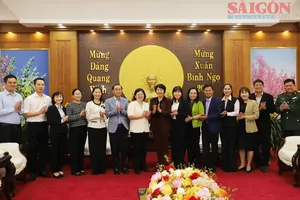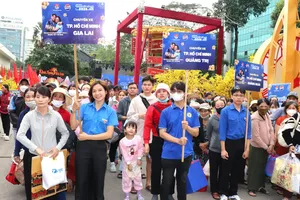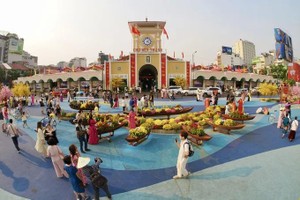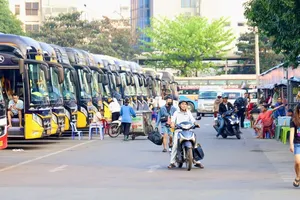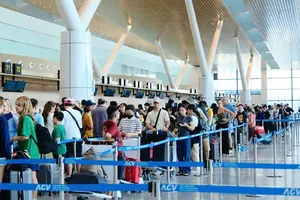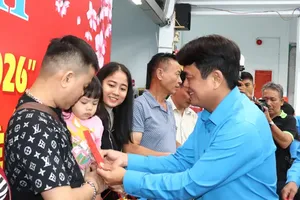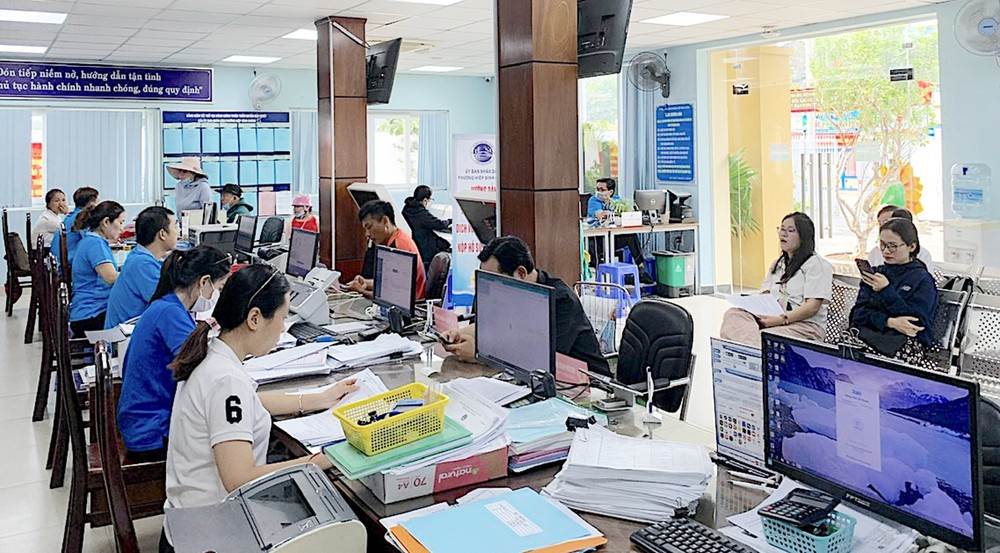
Like other localities, Ho Chi Minh City is entering the final phase of submitting plans to reorganize commune-level administrative units in line with government policy. Alongside meeting the criteria for commune restructuring, attention is also being given to the reassignment of personnel following the reorganization.
Ms. Truong My Phuong, a civil servant in Thu Duc City’s Hiep Binh Chanh Ward, remains busy with her daily responsibilities, alongside dozens of other ward officials. Due to the high volume of administrative procedures and public service demands, Ms. Phuong and her colleagues frequently work overtime to maintain progress and meet operational deadlines.
According to Ms. Phuong, she and her colleagues worked tirelessly from early morning until 6 or 7 p.m. While they occasionally discussed the organization's structure, the team primarily focused on performing their current roles to the best of their abilities. The organization took note of their dedicated efforts, with the intent of assigning suitable positions when establishing new administrative units.
In the recent draft amendment to the Law on Cadres and Civil Servants, the Ministry of Home Affairs proposed maintaining the current number of commune-level personnel until the completion of streamlining and restructuring based on job positions, within five years from the law’s effective date. If approved, this measure would give localities additional time to reorganize their workforce. Nonetheless, Ho Chi Minh City remains proactive, conducting ongoing reviews to identify and appoint staff aligned with practical needs.
Head of the Organization Commission of the Ho Chi Minh City Party Committee Van Thi Bach Tuyet said that the Standing Committee of the City Party Committee has been monitoring the arrangement and assignment of civil servants across the city.
According to her, the Organization Commission of the Ho Chi Minh City Party Committee has directed localities to prioritize the evaluation of cadres and civil servants to support appropriate personnel arrangements. The Commission is also developing standards and criteria for placement of civil servants at the commune level. Notably, the selection process will be based on each individual’s competencies, professional track record, and approved planning, ensuring alignment with the specific needs of each locality.
Secretary Nguyen Huu Hiep of the Thu Duc City Party Committee announced that Thu Duc City has directed its localities and affiliated units to review and evaluate their staff. The goal is to create a list and propose work arrangements for these civil servants. In addition to the criteria set by the central Government and Ho Chi Minh City, Thu Duc City is also using its own internal standards to assess the performance of its civil servants.
In particular, Thu Duc City prioritizes proposing work arrangements for cadres and civil servants with specific products, recognized in the work of preventing and fighting the Covid-19 epidemic while studying and following the ideology, morality and style of President Ho Chi Minh. Moreover, the city has launched the 500-day emulation movement towards the 50th anniversary of the Liberation of the South and National Reunification.
According to the Government's proposal, in addition to their existing responsibilities, commune-level authorities will assume two-thirds of the workload currently handled at the district level.
In addition, the 5-year streamlining roadmap is not too long, so according to experts, it is necessary to seriously evaluate and have a strict plan for staff work.The government project calls for robust application of information technology, as well as enhanced training to improve the team's capabilities and ensure successful task completion.
Lecturer Nguyen Thi Ngoc from the Ho Chi Minh City Academy of Cadres emphasized that in today’s evolving context, staff and civil servants must possess not only strong professional qualifications but also the ability to adapt swiftly to a modern work environment, demonstrate digital proficiency, and embrace innovative thinking. As such, in-depth training and development are essential to equip this workforce to meet the increasingly high demands of their roles.
Sharing the same view, Dr. Nguyen Van Tron of Ho Chi Minh City University of Agriculture and Forestry voiced his opinion that training programs for civil servants need to focus on improving leadership and administrative management skills. According to him, staff of state organizations will have to take on a larger workload and manage more complex tasks, so effective leadership and management skills will be an important factor in helping them perform their duties.
In addition to comprehensive training programs designed to equip commune-level cadres with legal and administrative expertise, Associate Professor Nguyen Quoc Dung, Director of the Regional Political Academy II, emphasized the importance of developing their skills in managing and addressing local socio-economic issues. He also highlighted the need to design specialized training tailored to each sector, involving leading experts, and to expand practical courses grounded in real-world scenarios.
At the meeting on the socio-economic situation and results in the first quarter of 2025; tasks and solutions for the second quarter of 2025, Secretary of the Ho Chi Minh City Party Committee Nguyen Van Nen said that the opportunity to build a quality staff is an important step in the restructuring of administrative units according to the 2-tier local government model; therefore, staff in the southern metropolis should have a broad vision and think carefully about all solutions and implementation plans.
According to him, this is also an opportunity for the city to carefully select, analyze and evaluate, in order to build a better quality staff than before. The streamlining of staff will not be implemented en masse immediately after the restructuring, but will be implemented step by step, gradually reducing according to the roadmap and specific job positions according to central regulations. Each individual in the political system must be aware of their responsibilities and must strive to complete their work in the best way possible.







